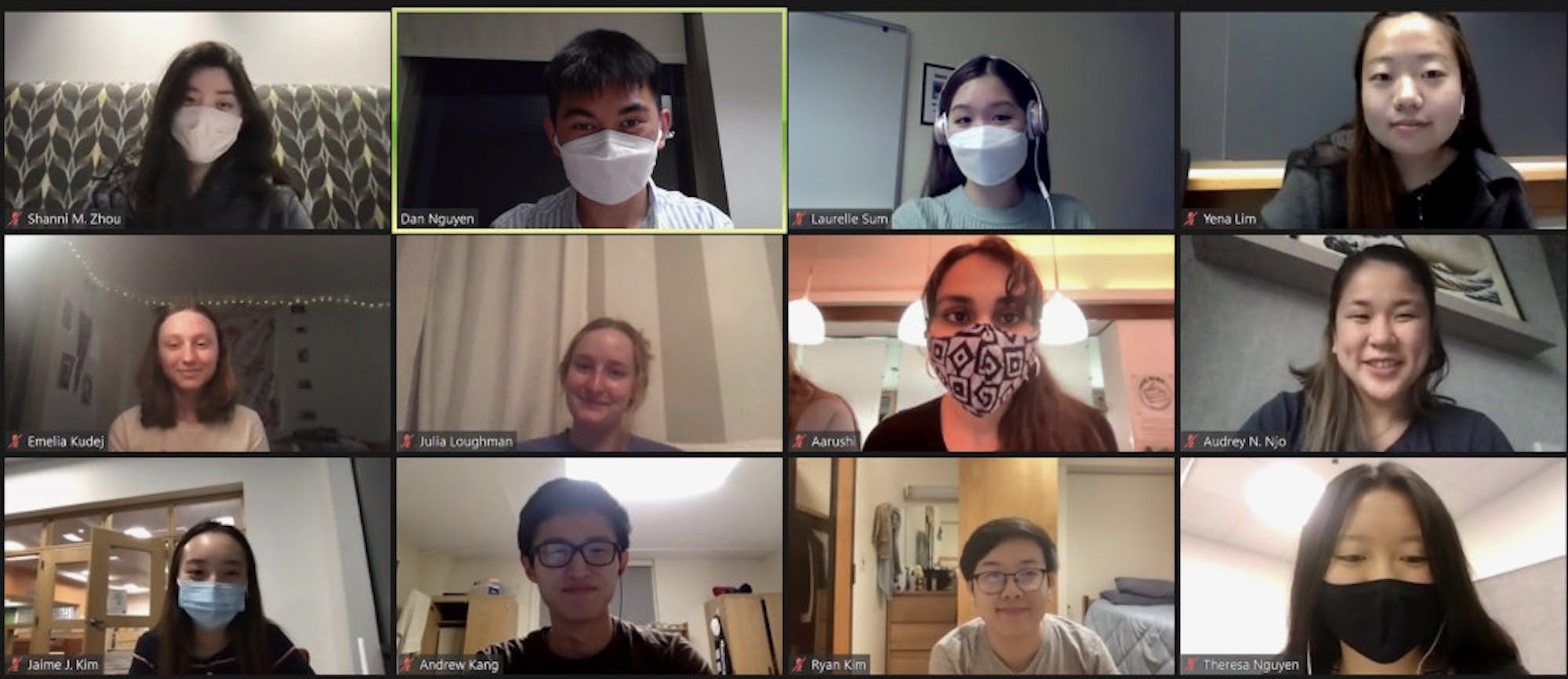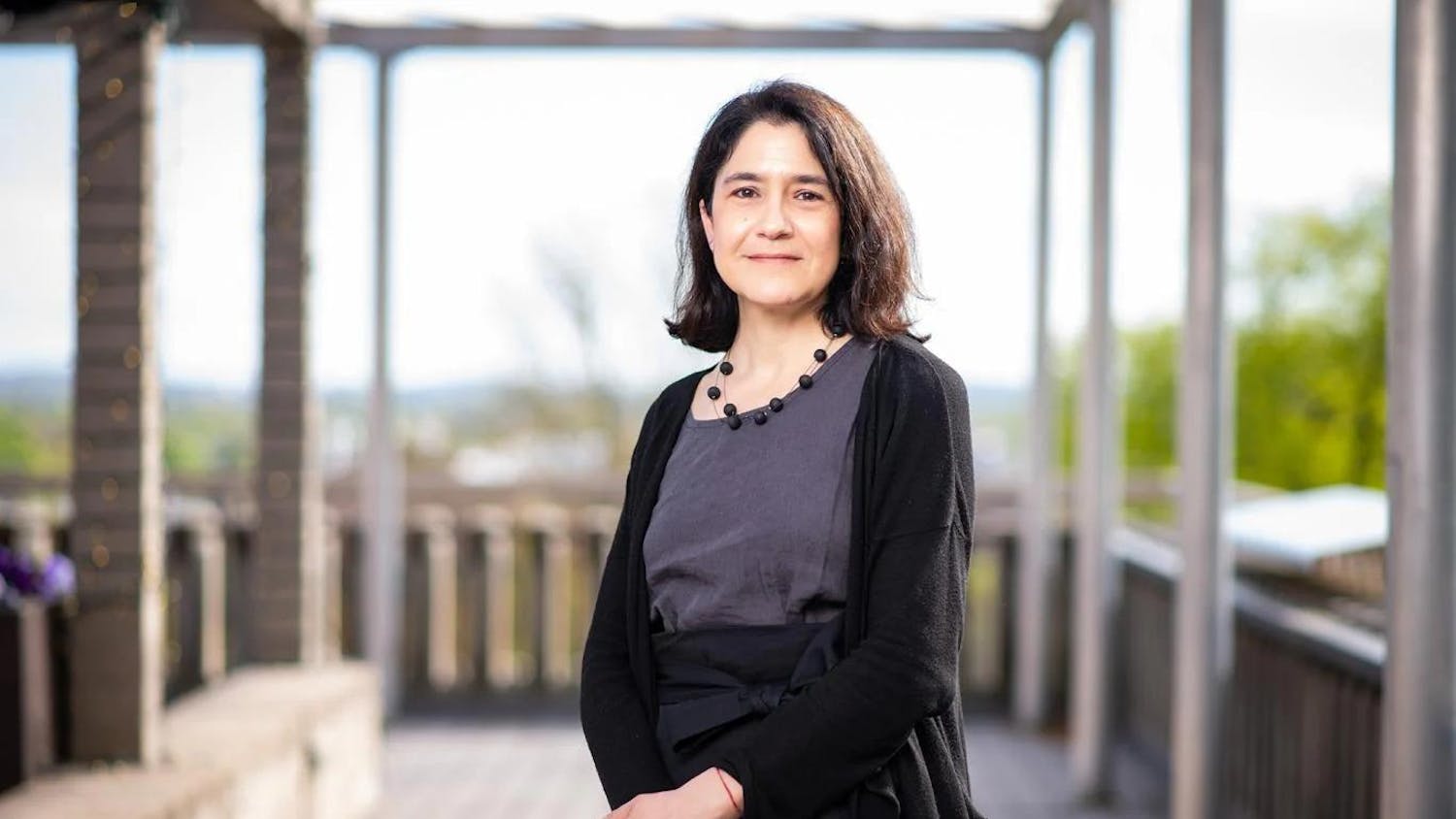First-years Dan Nguyen and Shanni Zhou launched a chapter of Thirst Project at Tufts in February, and have been working to expand their reach to raise awareness about the global water crisis. Thirst Project is a national organization that “works with the support of young people to end the global water crisis by building freshwater wells in developing communities that need safe, clean drinking water,” according to its mission statement.
Nguyen brought a chapter of the organization to Tufts after being involved with it in high school, and the chapter was recently approved to be a part of Leonard Carmichael Society. He outlined the goals of the chapter.
"Our two goals for the club are to, number one, educate Tufts students and the greater Boston area about the global water crisis," Nguyen said. "And our second goal is to fundraise money to build a well in Eswatini. One well is approximately $12,000 and can provide 500 people with water for life."
Zhou, Nguyen's co-founder, said she hopes to spread awareness of the club's mission.
"I just want people to know about Thirst Project and for us to be able to reach out to the community and get people to think a little bit about their water usage and their privilege and how they can help others around the world," Zhou said.
Nguyen expanded on the importance of Thirst Project's work.
“According to our statistics, $25 can provide one person with water for life, and Thirst Project is unique from other water organizations because we are 100%. That means that 100% of our donations from students and other donors go immediately towards a well project in Eswatini without Thirst Project admin taking any of that money to pay for their expenses,” Nguyen said.
The chapter’s treasurer, Andrew Kang, ensures the transparency of the funds, which is important to Thirst Project's mission.
"Thirst Project is a pretty transparent help in terms of showing exactly what funds we have, et cetera," Kang, a first-year, said. "100% of proceeds also are used to help with all the projects. In terms of building these wells that go across the world, I basically just have to make sure I organize all the funds accordingly and see where they go."
Zhou explained why the Tufts chapter has chosen to focus on Eswatini.
“There are over 600 million people without consistent access to clean, fresh water across all continents, not just in the places that you usually think of, and right now we're focusing on Eswatini because they have the lowest rate of access to clean water and also are heavily affected by HIV/AIDS," Zhou said. "Clean water is so important to all different types of health systems, and then further affects education. Basically, it's important to everything."
According to Nguyen, the project's chapter at Tufts has raised $1,666 since February, which is enough to provide 46 people with clean drinking water for life. As part of an effort to solicit donations, the club hosted a minute-long fundraising activity following a screening of a Thirst Project documentary. This "miracle minute," as Nguyen referred to it, raised more than $120. The club also raised funds by hosting a bingo game in March on World Water Day, which isobserved annually by the United Nations to raise awareness about the global water crisis.
According to the club’s Instagram account, Nguyen and other members of the organization hosted a "jerrican vlog activity," in which members of the club carried a jerrican with them for the day — and vlogged periodically while doing it — to raise awareness.
"We hope [the jerrican] draws attention and then that will give us an opportunity to tell people about the global water crisis and our club," Nguyen said.
The club is hosting an Earth Day raffle fundraiser that began on Wednesday and will run through Sunday.






